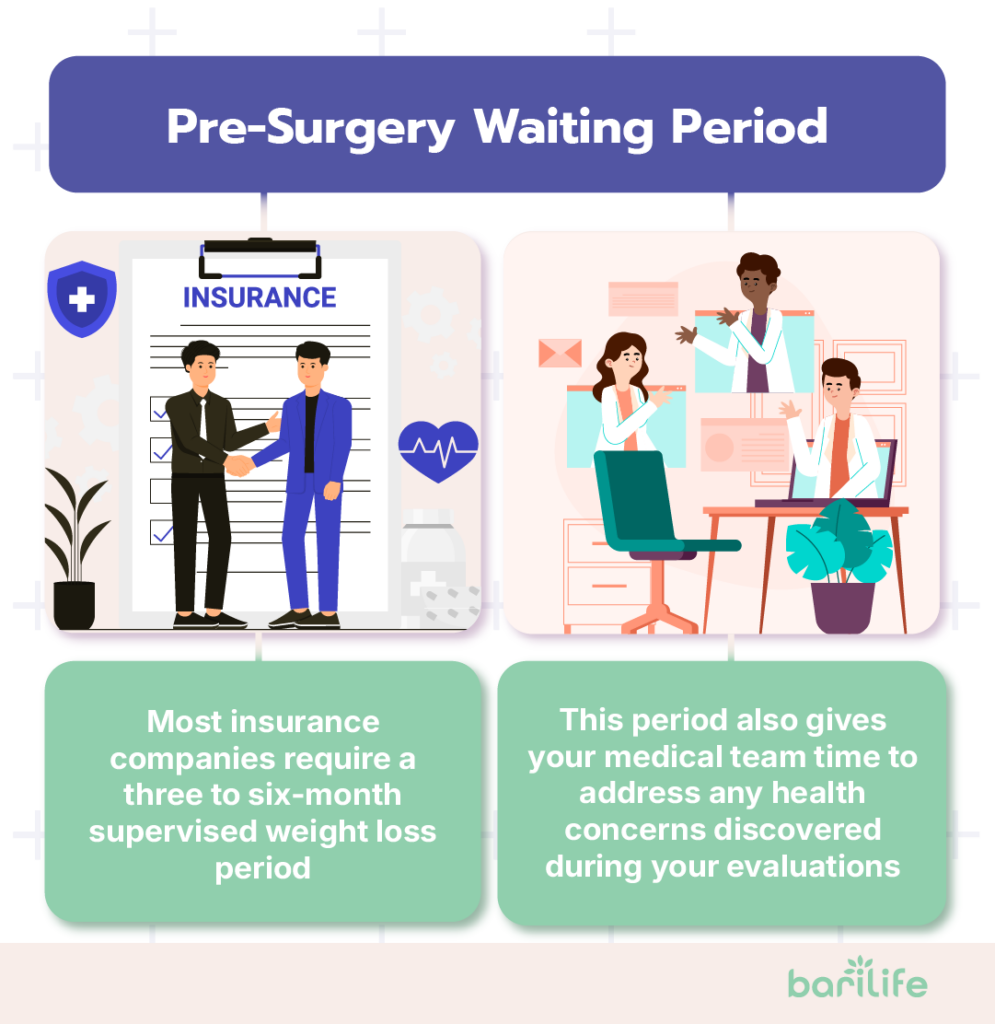Key Takeaways
- The journey from consultation to bariatric surgery typically takes several months to a year, as individuals must complete medical evaluations, a supervised weight loss period, and insurance requirements.
- Pre-surgery preparation, including lifestyle changes, mental health assessments, and medical screenings, is crucial for ensuring a safe and successful procedure.
- Bari Life can support your journey with specialized bariatric vitamins, nutrition, and educational resources to help you prepare for surgery and maintain long-term health.
The time it takes from consultation to surgery is longer than many people think. The process can take several months to a year as it involves several key steps designed to make sure the procedure is a success.
Let's look at the typical timeline and what to expect at first bariatric appointment and throughout the preparation phase. While every patient's journey is unique, understanding the typical process can help you plan and prepare for surgery.
Initial Consultation: What to Expect

The first step is meeting your bariatric surgeon. During this first visit, you'll discuss your weight loss goals, review your medical history, and learn about different surgical options.
You'll also learn about insurance requirements. Most companies have specific criteria that you need to meet before they approve surgery.
Your surgeon will do a comprehensive review of your medical background, including any past surgeries, medications you're taking, and existing health conditions. They need this complete picture to identify potential risks and create the safest plan for your surgery.
You'll also have an in-depth discussion about your weight loss journey, including previous attempts at weight loss and what brings you to consider surgery now.
Many people find this conversation eye-opening as they learn about the benefits and the lifelong changes required after bariatric surgery.
This is the perfect time to questions to ask bariatric surgeon and really understand the journey ahead.
Pre-Surgery Medical and Psychological Evaluations
After your consultation, you must complete a series of medical clearances. These include:
- Physical examinations
- Blood work
- Cardiac evaluations
- Imaging studies
The purpose of these tests is to catch any potential health concerns early and reduce the risk of complications.
Along with physical health checks, you'll meet with a mental health professional to check your psychological health and ensure you have the proper support and coping strategies.
You'll discuss how you handle stress, your support system at home, and any concerns you have about the changes ahead. Some individuals need additional emotional support or counseling to prepare for the significant life changes that come with bariatric surgery.
This evaluation phase typically takes one to six months, depending on your medical needs and appointment availability.
Pre-Surgery Waiting Period

Most insurance companies require a three to six-month supervised weight loss period. During this time, you'll follow a specific diet plan, start exercising regularly, and attend nutrition classes. You may also start incorporating bariatric protein bars or bariatric snacks into your diet to help maintain energy levels while adjusting to new eating habits.
You'll have regular check-ups with your healthcare team to track your progress. This period helps you develop healthy habits that will be crucial after surgery.
This also gives your medical team time to address any health concerns discovered during your evaluations. If you have conditions like high blood pressure or diabetes, your medical providers will work to get these under better control.
If you smoke, this is the time to quit, as smoking can seriously affect your surgery success and recovery.
While handling the medical aspects, you’ll also need to handle practical matters. Work with your insurance company for approval, organize time off work, and coordinate with different healthcare providers.
Many people use this time to join support groups or start counseling, which can help with mental preparedness for the changes ahead.
Surgery Scheduling & Final Preparations
Once you've completed all requirements and received insurance approval, you can schedule your surgery date. The final weeks will involve pre-operative testing and final instructions from your surgeon.
Your surgeon will provide detailed instructions about medications—which ones to stop and which to continue. You'll learn what to do in the days before surgery, including when to stop eating and drinking and any special instructions to follow.
You'll also prepare for your recovery at home. This means arranging time off work, setting up help for the first few weeks after surgery, and ensuring you have everything you need for a comfortable recovery. Having essential supplements like a liquid bariatric vitamin and bariatric calcium chews can help maintain proper nutrition while your body adapts to post-surgery changes.
Your medical team will help you understand each stage, from your last pre-surgery appointment to your first day back home.
Average Timeline from Consultation to Surgery

Most people complete the entire process within a year, but your journey might differ. Several factors affect how long it takes to reach your surgery date. Your health history, the type of surgery you're having, and how quickly you complete required evaluations all play important roles in determining your timeline.
The pre-surgical evaluation process itself takes time—and for good reason. Your medical team has to conduct thorough health screenings and make sure you're physically and mentally ready for this life-changing surgery. Some individuals may need extra time to work on specific health issues or complete additional testing based on their evaluation results.
Another factor that affects timing is the scheduling process itself. Popular surgery centers often have waiting lists due to high demand. Your surgery date will depend on the operating room availability and the coordination of your entire surgical team.
Conclusion
The months leading up to bariatric surgery might feel long. Each evaluation, appointment, and lifestyle change serves a specific purpose. The supervised weight loss period helps you build habits that will carry you through your post-surgery life. Medical evaluations ensure your safety, while mental health support prepares you for the emotional aspects of this big life change.
Some people worry about the length of time from consultation to surgery day. But those who've been through it often say this preparation period was crucial to their long-term success. It gives you time to adjust, learn, and build a strong foundation for the changes ahead.
Bariatric surgery is not just a procedure—it's the start of a new chapter in your life. Taking the time to prepare appropriately now can make all the difference in your journey toward better health. Supporting this process with the right nutrition, including bariatric multivitamin with iron and bariatric vitamins for hair loss, can help ensure long-term success.
How Bari Life Can Help

Navigating the months-long journey from consultation to bariatric surgery can feel overwhelming, but Bari Life is here to support you every step of the way. From pre-surgery nutrition to post-op recovery,
Bari Life offers specially formulated vitamins, meal replacements, and protein supplements designed to meet the unique needs of bariatric patients.
Whether you’re looking for pre-surgical supplements, post-surgical supplements, or meal replacements, Bari Life provides the tools to help you succeed.
Search Bari Life’s products today!
If you want to learn more, why not check out these articles below:
- How Long Do You Have To Stop Smoking Before Bariatric Surgery?
- Bariatric Surgery Must Haves
- What To Eat Before Bariatric Surgery?
- Preparing For Bariatric Surgery
- Bariatric Surgery Hospital Checklist
Resources
Related Diseases. Snyder, A. G. (2009). Psychological Assessment of the Patient Undergoing Bariatric Surgery. The Ochsner Journal.

Leave a Comment
Your email address will not be published.